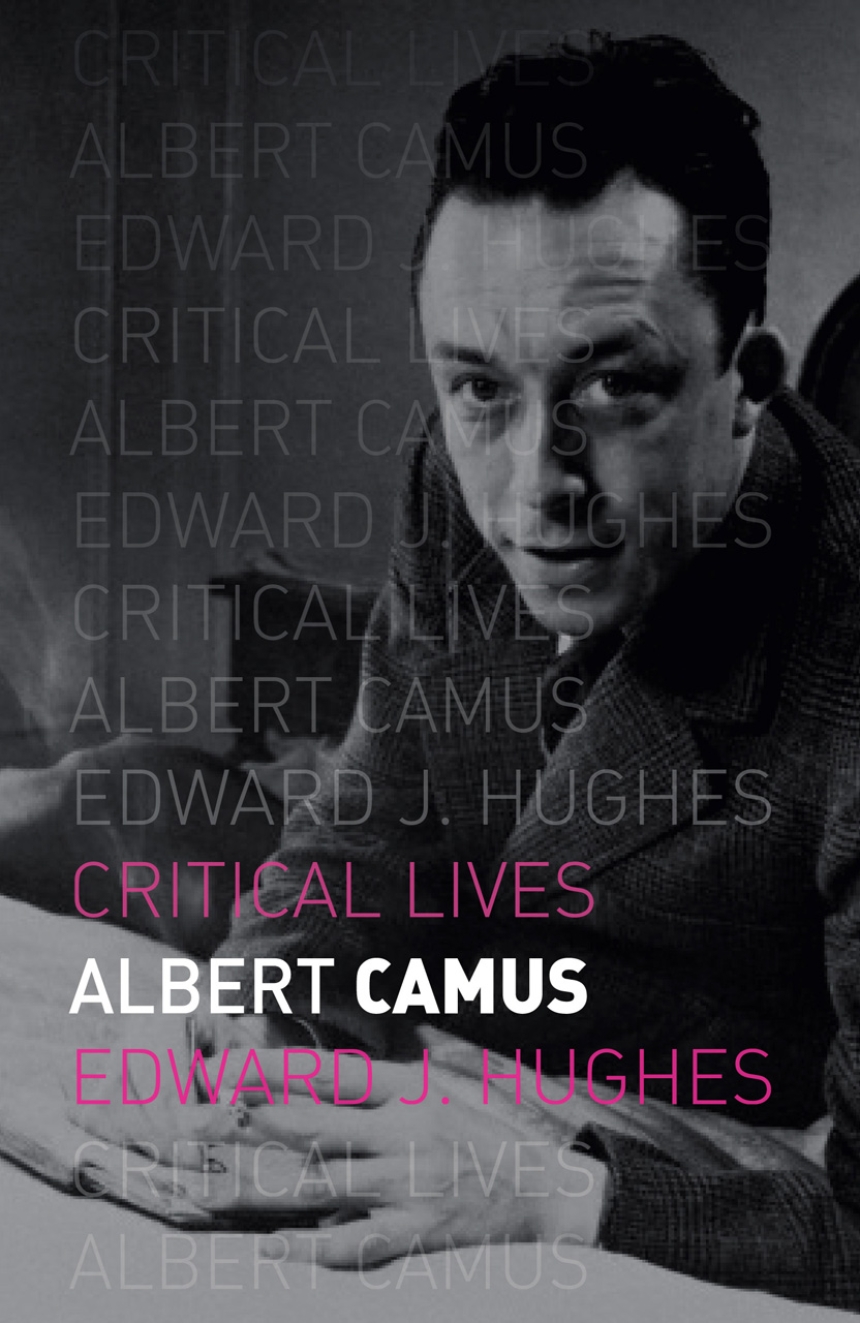Distributed for Reaktion Books
Albert Camus
Winner of the Franco-British Society Literary Prize 2015
Few figures of twentieth-century French culture carry such an air of romance and intrigue as Albert Camus. Though his life was cut short by a fatal car accident in 1960, when he was just forty-six years old, he packed those years with an incredible amount of experience and accomplishment. This new entry in the Critical Lives series offers a fresh look at Camus’ life and work, from his best-selling novels like The Stranger to his complicated political engagement in a postwar world of intensifying ideological conflict. Edward Hughes offers a particularly nuanced exploration of Camus’ relationship to his native Algeria—a connection whose strength would be tested in the 1950s as France’s conflict with the anticolonial movement there became increasingly violent and untenable.
Ultimately, the picture Hughes offers is of a man whose commitment to ideas and truth reigned supreme, whether in his fiction, journalism, or political activity, a commitment that has led the man who disclaimed leadership—“I do not guide anyone,” he once pleaded—to nonetheless be seen as a powerful figure and ethical force.
Few figures of twentieth-century French culture carry such an air of romance and intrigue as Albert Camus. Though his life was cut short by a fatal car accident in 1960, when he was just forty-six years old, he packed those years with an incredible amount of experience and accomplishment. This new entry in the Critical Lives series offers a fresh look at Camus’ life and work, from his best-selling novels like The Stranger to his complicated political engagement in a postwar world of intensifying ideological conflict. Edward Hughes offers a particularly nuanced exploration of Camus’ relationship to his native Algeria—a connection whose strength would be tested in the 1950s as France’s conflict with the anticolonial movement there became increasingly violent and untenable.
Ultimately, the picture Hughes offers is of a man whose commitment to ideas and truth reigned supreme, whether in his fiction, journalism, or political activity, a commitment that has led the man who disclaimed leadership—“I do not guide anyone,” he once pleaded—to nonetheless be seen as a powerful figure and ethical force.
Reviews
Table of Contents
Note on Texts, Abbreviations and Translations
Introduction: ‘Who is Camus?’
1. Literacy, or ‘the Regular Rows of the Lines’
2. ‘True Love…Awkward Pages’
3. ‘This Algiers Happiness’
4. All Work and No Play
5. A Beautiful Profession
6. A Tale of Two Outsiders
7. ‘All Man’s Misery…’
8. Combat and the Narrative of Liberation
9. ‘A Catastrophe Slow to Happen’
10. Wars of Words Continued
11. Beyond Polemic: ‘From Now On, Creation’
12. Staging Confession
13. Stockholm and the Backdrop to Fame
14. 1958 152
15. Cohabiting with Oneself
16. A Contested Legacy
References
Bibliography
Acknowledgments
Photo Acknowledgments
Introduction: ‘Who is Camus?’
1. Literacy, or ‘the Regular Rows of the Lines’
2. ‘True Love…Awkward Pages’
3. ‘This Algiers Happiness’
4. All Work and No Play
5. A Beautiful Profession
6. A Tale of Two Outsiders
7. ‘All Man’s Misery…’
8. Combat and the Narrative of Liberation
9. ‘A Catastrophe Slow to Happen’
10. Wars of Words Continued
11. Beyond Polemic: ‘From Now On, Creation’
12. Staging Confession
13. Stockholm and the Backdrop to Fame
14. 1958 152
15. Cohabiting with Oneself
16. A Contested Legacy
References
Bibliography
Acknowledgments
Photo Acknowledgments

